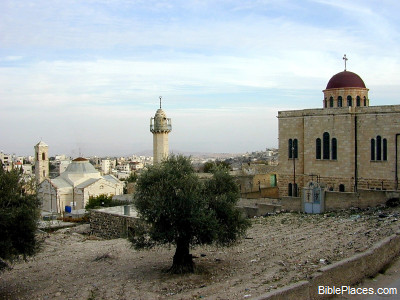 |
| Bethany |
Blessed John-Paul II "A liter of costly perfumed
oil" - Blogspot
An interest inquiry into
MaryWhoAnointsJesus?
JESUS’ ANOINTING IN BETHANY
GOSPEL ACCOUNTS
----- Forwarded Message -----
From: DGO ...
Sent: Sunday, 24 March 2013.
Subject: The Daily Gospel
From: DGO ...
Sent: Sunday, 24 March 2013.
Subject: The Daily Gospel
Apostolic Exhortation « Vita Consecrata », § 104 (trans. © copyright Libreria Editrice Vaticana)
Many people today are puzzled and ask: What is the point of the consecrated life? Why embrace this kind of life, when there are so many urgent needs... to which one can respond even without assuming the particular commitments of the consecrated life? Is the consecrated life not a kind of "waste" of human energies which might be used more efficiently for a greater good, for the benefit of humanity and the Church?... But such questions have always existed, as is eloquently demonstrated by the Gospel episode of the anointing at Bethany: "Mary took a pound of costly ointment of pure nard and anointed the feet of Jesus and wiped his feet with her hair; and the house was filled with the fragrance of the ointment". When Judas, using the needs of the poor as an excuse, complained about such waste, Jesus replied: "Let her alone!"
This is the perennially valid response to the question which many people, even in good faith, are asking about the relevance of the consecrated life... "Let her alone!" Those who have been given the priceless gift of following the Lord Jesus more closely consider it obvious that he can and must be loved with an undivided heart, that one can devote to him one's whole life, and not merely certain actions or occasional moments or activities. The precious ointment poured out as a pure act of love, and thus transcending all "utilitarian" considerations, is a sign of unbounded generosity, as expressed in a life spent in loving and serving the Lord, in order to devote oneself to his person and his Mystical Body. From such a life "poured out" without reserve there spreads a fragrance which fills the whole house. The house of God, the Church, today no less than in the past, is adorned and enriched by the presence of the consecrated life... The consecrated life is important precisely in its being unbounded generosity and love, and this all the more so in a world which risks being suffocated in the whirlpool of the ephemeral.
This is the perennially valid response to the question which many people, even in good faith, are asking about the relevance of the consecrated life... "Let her alone!" Those who have been given the priceless gift of following the Lord Jesus more closely consider it obvious that he can and must be loved with an undivided heart, that one can devote to him one's whole life, and not merely certain actions or occasional moments or activities. The precious ointment poured out as a pure act of love, and thus transcending all "utilitarian" considerations, is a sign of unbounded generosity, as expressed in a life spent in loving and serving the Lord, in order to devote oneself to his person and his Mystical Body. From such a life "poured out" without reserve there spreads a fragrance which fills the whole house. The house of God, the Church, today no less than in the past, is adorned and enriched by the presence of the consecrated life... The consecrated life is important precisely in its being unbounded generosity and love, and this all the more so in a world which risks being suffocated in the whirlpool of the ephemeral.
Messiah Communications
http://messiahcommunications.blogspot.co.uk/p/mary-of-bethany-vs-mary-magdalene.html
MaryWhoAnointsJesus?
By Alan John Meister
JESUS’ ANOINTING IN BETHANY
GOSPEL ACCOUNTS
COMMENTARY
JESUS’ ANOINTING IN BETHANY
GOSPEL ACCOUNTS
Although each of the Gospels relate this event and its circumstances a little differently, when all the Gospels are taken together, we get a composite picture of the account. Moreover, when we examine the inclusions or omissions of each Gospel, we get a good picture of the thematic approach of each Gospel writer. So lets begin by looking at some of the major variations.
First, the timing of the scene. The Johannine Gospel indicates this scene took place six days before Passover, "Six days before Passover Jesus came to Bethany (John 12:1)." This places it on the Monday (six days from the Passover) before the crucifixion of Jesus. Matthew and Mark seems to indicate it took place only two days before the Passover, "You know that in two days' time it will be Passover (Matt. 26:2)," or "The Passover and the Feast of Unleavened Bread were to take place in two days' time (Mark 14:1)." But, the literary style of Matthean and Markan Gospels appears to reflecting on a prior event (they are in the past tense). Consequently, the Matthean and Markan texts reflect on the event “after” its occurrence, i..e, having previously occurred in the order of the gospel events. Furthermore these gospels moved the account in order to stress the event as an anointing to prepare Jesus for his death and burial.



